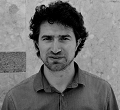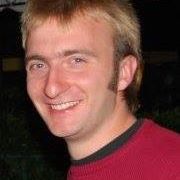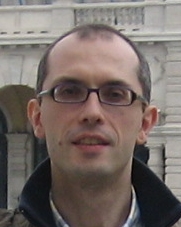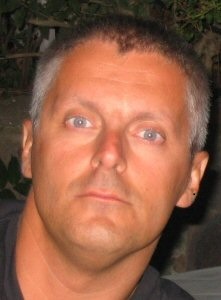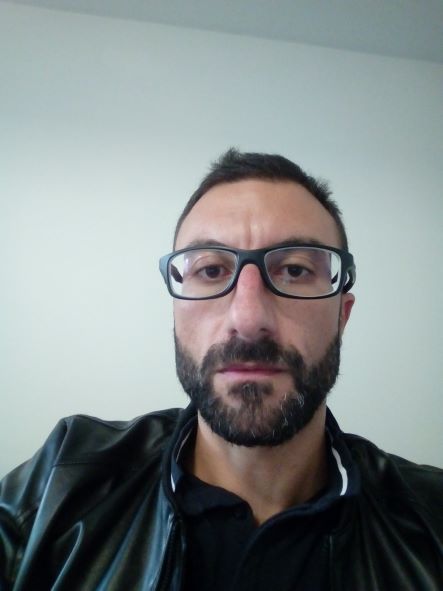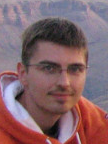Studiare
In questa sezione è possibile reperire le informazioni riguardanti l'organizzazione pratica del corso, lo svolgimento delle attività didattiche, le opportunità formative e i contatti utili durante tutto il percorso di studi, fino al conseguimento del titolo finale.
Calendario accademico
Il calendario accademico riporta le scadenze, gli adempimenti e i periodi rilevanti per la componente studentesca, personale docente e personale dell'Università. Sono inoltre indicate le festività e le chiusure ufficiali dell'Ateneo.
L’anno accademico inizia il 1° ottobre e termina il 30 settembre dell'anno successivo.
Calendario didattico
Il calendario didattico indica i periodi di svolgimento delle attività formative, di sessioni d'esami, di laurea e di chiusura per le festività.
| Periodo | Dal | Al |
|---|---|---|
| I semestre | 1-ott-2020 | 29-gen-2021 |
| II semestre | 1-mar-2021 | 11-giu-2021 |
| Sessione | Dal | Al |
|---|---|---|
| Sessione invernale d'esame | 1-feb-2021 | 26-feb-2021 |
| Sessione estiva d'esame | 14-giu-2021 | 30-lug-2021 |
| Sessione autunnale d'esame | 1-set-2021 | 30-set-2021 |
| Sessione | Dal | Al |
|---|---|---|
| Sessione Estiva | 15-lug-2021 | 15-lug-2021 |
| Sessione Autunnale | 15-ott-2021 | 15-ott-2021 |
| Sessione Invernale | 15-mar-2022 | 15-mar-2022 |
| Periodo | Dal | Al |
|---|---|---|
| Festa dell'Immacolata | 8-dic-2020 | 8-dic-2020 |
| Vacanze Natalizie | 24-dic-2020 | 3-gen-2021 |
| Epifania | 6-gen-2021 | 6-gen-2021 |
| Vacanze Pasquali | 2-apr-2021 | 5-apr-2021 |
| Santo Patrono | 21-mag-2021 | 21-mag-2021 |
| Festa della Repubblica | 2-giu-2021 | 2-giu-2021 |
Calendario esami
Gli appelli d'esame sono gestiti dalla Unità Operativa Segreteria Corsi di Studio Scienze e Ingegneria.
Per consultazione e iscrizione agli appelli d'esame visita il sistema ESSE3.
Per problemi inerenti allo smarrimento della password di accesso ai servizi on-line si prega di rivolgersi al supporto informatico della Scuola o al servizio recupero credenziali
Docenti
 mariacaterina.baruffi@univr.it
mariacaterina.baruffi@univr.it
 mariano.ceccato@univr.it
mariano.ceccato@univr.it
 vittoria.cozza@univr.it
vittoria.cozza@univr.it
 giovannigerardo.muscolo@univr.it
giovannigerardo.muscolo@univr.it
Piano Didattico
Il piano didattico è l'elenco degli insegnamenti e delle altre attività formative che devono essere sostenute nel corso della propria carriera universitaria.
Selezionare il piano didattico in base all'anno accademico di iscrizione.
1° Anno
| Insegnamenti | Crediti | TAF | SSD |
|---|
Compulsory courses for Embedded & IoT SystemsCompulsory courses for Smart systems &data analytics2° Anno Attivato nell'A.A. 2021/2022
| Insegnamenti | Crediti | TAF | SSD |
|---|
Compulsory courses for Embedded & IoT SystemsCompulsory courses for Robotics systemsCompulsory courses for Smart systems &data analytics| Insegnamenti | Crediti | TAF | SSD |
|---|
Compulsory courses for Embedded & IoT SystemsCompulsory courses for Smart systems &data analytics| Insegnamenti | Crediti | TAF | SSD |
|---|
Compulsory courses for Embedded & IoT SystemsCompulsory courses for Robotics systemsCompulsory courses for Smart systems &data analytics| Insegnamenti | Crediti | TAF | SSD |
|---|
3 courses to be chosen among the followingLegenda | Tipo Attività Formativa (TAF)
TAF (Tipologia Attività Formativa) Tutti gli insegnamenti e le attività sono classificate in diversi tipi di attività formativa, indicati da una lettera.
Machine learning & artificial intelligence (2020/2021)
Codice insegnamento
4S009001
Crediti
9
Lingua di erogazione
Inglese
Settore Scientifico Disciplinare (SSD)
ING-INF/05 - SISTEMI DI ELABORAZIONE DELLE INFORMAZIONI
L'insegnamento è organizzato come segue:
Teoria
Laboratorio
Obiettivi formativi
Il corso intende fornire i fondamenti teorici e descrivere le metodologie principali relative all’area di apprendimento automatico (machine learning), e più in generale all’area di Intelligenza Artificiale. In particolare, il corso si occuperà di descrivere i metodi di analisi, riconoscimento e classificazione automatica di dati di qualsiasi tipo, detti tipicamente pattern.
Queste discipline sono alla base, sono utilizzate, e spesso completano molte altre discipline ed aree applicative di larga diffusione, quali la visione computazionale, la robotica, l’elaborazione delle immagini, data mining, l’analisi ed interpretazione di dati medicali e biologici, la bioinformatica, biometria, videosorveglianza, il riconoscimento del parlato e del testo e numerose altre. Più precisamente, le metodologie che verranno introdotte nel corso sono spesso parte integrante delle aree applicative su citate, e ne costituiscono la parte “intelligente” con l’obiettivo finale di comprendere (classificare, riconoscere, analizzare) i dati provenienti dal processo di interesse (siano essi segnali, immagini, stringhe, categoriali, o di altro tipo).
A partire dalla tipologia di dati misurati, verrà considerata l’intera pipeline di analisi quali l’estrazione e selezione di caratteristiche; metodi di apprendimento automatico supervisionato e non supervisionato, tecniche di analisi parametriche e non, e i protocolli di validazione. Verranno infine analizzati in generale le recenti tecniche di apprendimento “profondo” (deep learning) con alcuni casi studio.
In conclusione, il corso si propone di fornire allo studente un insieme di fondamenti teorici e strumenti algoritmici per affrontare le problematiche che si possono incontrare in settori industriali strategici ed innovativi quali quelli che coinvolgono la robotica, i sistemi cyber fisici, l’elaborazione di grandi quantità di dati (big data), digital manufacturing, l’ispezione visuale di prodotti/processi di produzione e l’automazione in genere.
Programma
Il corso intende fornire i fondamenti teorici e metodi principali relativi all’analisi di dati, non necessariamente immagini, in breve verranno trattati teoria e metodi di classificazione statistica.
Questi temi sono propedeutici alle tecniche più recenti di Deep Learning.
Contenuti del corso
Introduzione: cos’è, a cosa serve, sistemi, applicazioni
Teoria della decisione di Bayes
Stima dei parametri e metodi non parametrici
Classificatori lineari, non lineari e funzioni discriminanti
Trasformazioni lineari e metodo di Fisher, estrazione e selezione delle feature, Principal Component Analysis
Misture di Gaussiane e algoritmo Expectation-Maximization
Metodi Kernel e Support Vector Machines
Hidden Markov Models
Reti neurali artificiali
Metodi di classificazione non supervisionata (clustering)
Combinazione di classificatori
Apprendimento profondo
Temi avanzati di metodi di apprendimento profondo
Modalità d'esame
Svolgimento di un progetto, con relazione ed esposizione orale.
2 persone max, 3 persone per progetti più complessi (da concordare col docente)
L’esposizione del progetto include una parte di domande volte alla valutazione della conoscenza dei contenuti del corso.
Tipologia di Attività formativa D e F
Le attività formative in ambito D o F comprendono gli insegnamenti impartiti presso l'Università di Verona o periodi di stage/tirocinio professionale.
Nella scelta delle attività di tipo D, gli studenti dovranno tener presente che in sede di approvazione si terrà conto della coerenza delle loro scelte con il progetto formativo del loro piano di studio e dell'adeguatezza delle motivazioni eventualmente fornite.
| anni | Insegnamenti | TAF | Docente |
|---|---|---|---|
| 1° 2° | Linguaggio Programmazione Matlab-Simulink | D |
Bogdan Mihai Maris
(Coordinatore)
|
| anni | Insegnamenti | TAF | Docente |
|---|---|---|---|
| 1° 2° | Introduzione alla stampa 3D | D |
Franco Fummi
(Coordinatore)
|
| 1° 2° | Linguaggio programmazione Python | D |
Vittoria Cozza
(Coordinatore)
|
| 1° 2° | Progettazione di componenti hardware su FPGA | D |
Franco Fummi
(Coordinatore)
|
| 1° 2° | Prototipizzazione con Arduino | D |
Franco Fummi
(Coordinatore)
|
| 1° 2° | Tutela dei beni immateriali (SW e invenzione) tra diritto industriale e diritto d’autore | D |
Roberto Giacobazzi
(Coordinatore)
|
| anni | Insegnamenti | TAF | Docente |
|---|---|---|---|
| 1° 2° | Lab.: The fashion lab (1 cfu) | D |
Maria Caterina Baruffi
(Coordinatore)
|
| 1° 2° | Minicorso Blockchain | D |
Nicola Fausto Spoto
(Coordinatore)
|
Prospettive
Avvisi degli insegnamenti e del corso di studio
Per la comunità studentesca
Se sei già iscritta/o a un corso di studio, puoi consultare tutti gli avvisi relativi al tuo corso di studi nella tua area riservata MyUnivr.
In questo portale potrai visualizzare informazioni, risorse e servizi utili che riguardano la tua carriera universitaria (libretto online, gestione della carriera Esse3, corsi e-learning, email istituzionale, modulistica di segreteria, procedure amministrative, ecc.).
Entra in MyUnivr con le tue credenziali GIA: solo così potrai ricevere notifica di tutti gli avvisi dei tuoi docenti e della tua segreteria via mail e a breve anche tramite l'app Univr.
Prova Finale
Scadenziari e adempimenti amministrativi
Per gli scadenziari, gli adempimenti amministrativi e gli avvisi sulle sessioni di laurea, si rimanda al servizio Sessioni di laurea - Scienze e Ingegneria.
Necessità di attivare un tirocinio per tesi
Per stage finalizzati alla stesura della tesi di laurea, non è sempre necessaria l'attivazione di un tirocinio tramite l'Ufficio Stage. Per maggiori informazioni, consultare il documento dedicato, che si trova nella sezione "Documenti" del servizio dedicato agli stage e ai tirocini.
Regolamento della prova finale
Alla tesi di laurea sono dedicati 24 CFU, per un lavoro che non deve superare i 4-5 mesi a tempo pieno per la/o studentessa/studente.
Scopo della Tesi di Laurea
La Tesi di Laurea costituisce un importante ed imprescindibile passo nella formazione della/del futura/o laureata/o Magistrale in Computer Engineering for Robotics and Smart Industry. Scopo della tesi è quello di sviluppare uno studio quanto più originale che può culminare con un progetto applicativo o un risultato teorico connesso a specifici problemi di natura progettuale o una rassegna critica sullo stato dell'arte in un determinato ambito di studio. Nel
corso dello svolgimento della Tesi il laureando dovrà, sotto la guida della relatrice/relatore ed eventuali correlatrici/correlatori, affrontare lo studio e l'approfondimento degli argomenti scelti, ma anche acquisire capacità di sintesi e applicazione creativa delle conoscenze acquisite. Il contenuto della Tesi deve essere inerente a tematiche dell'Ingegneria e delle Scienze Informatiche o discipline strettamente correlate. La Tesi consiste nella presentazione in forma scritta di attività che possono essere articolate come:
- progettazione e sviluppo di applicazioni o sistemi;
- analisi critica di contributi tratti dalla letteratura scientifica;
- contributi originali di ricerca.
La Tesi sarà compilata in lingua inglese, e può essere discussa sia in inglese che in italiano, anche mediante l'ausilio di supporti multimediali quali slide, filmati, immagini e suoni.
Modalità di svolgimento e valutazione
Ogni Tesi di Laurea può essere interna o esterna a seconda che sia svolta presso l'Università di Verona o in collaborazione con altro ente, rispettivamente. Ogni Tesi prevede una/un relatrice/relatore eventualmente affiancata/o da una/uno o più correlatrici/correlatori e una/un controrelatrice/controrelatore. La/il controrelatrice/controrelatore è nominata/o dal Collegio Didattico di Informatica almeno 20 giorni prima della discussione della Tesi, verificata l'ammissibilità della/o studentessa/studente a sostenere l’esame di Laurea Magistrale. Per quanto riguarda gli aspetti giuridici (e.g., proprietà intellettuale dei risultati) legati alla Tesi e ai risultati ivi contenuti si rimanda alla legislazione vigente in materia ed ai Regolamenti di Ateneo.
Valutazione delle Tesi
I criteri su cui sono chiamati ad esprimersi relatore ed eventuali correlatori e controrelatore sono i seguenti:
- livello di approfondimento del lavoro svolto, in relazione allo stato dell'arte dei settori disciplinari di pertinenza informatica;
- avanzamento conoscitivo o tecnologico apportato dalla Tesi;
- impegno criticonespresso dalla/dal laureanda/o;
- impegno sperimentale e/o di sviluppo formale espresso dal laureando;
- autonomia di lavoro espressa dalla/dal laureanda/o;
- significatività delle metodologie impiegate;
- accuratezza dello svolgimento e della scrittura;
- la/il controrelatrice/controrelatore non è chiamata/o ad esprimersi sul punto 5.
Voto di Laurea
Il voto di Laurea (espresso in 110mi) è un valore intero compreso tra 66/110 e 110/110 e viene formato dalla somma, arrotondata al numero intero più vicino (e.g., 93.50 diventa 94, 86.49 diventa 86), dei seguenti addendi:
- 1. media pesata sui crediti e rapportata a 110 dei voti conseguiti negli esami di profitto;
- 2. valutazione del colloquio di Laurea e della Tesi secondo le seguenti modalità:
- a) attribuzione di un coefficiente compreso tra 0 e 1 (frazionario con una cifra decimale) per ciascuno dei punti 1-7 elencati sopra;
- b) attribuzione di un coefficiente compreso tra 0 e 1 (frazionario con una cifra decimale) per la qualità della presentazione;
- c) somma dei coefficienti attribuiti ai punti a e b.
La presenza di eventuali lodi ottenute negli esami sostenuti, la partecipazione a stage ufficialmente riconosciuti dal Collegio Didattico di Informatica, il superamento di esami in soprannumero ed il raggiungimento della Laurea in tempi contenuti rispetto alla durata legale del corso degli studi possono essere utilizzati dalla Commissione di Laurea per attribuire un ulteriore incremento di un punto. Qualora la somma ottenuta raggiunga 110/110, la Commissione può decidere l'attribuzione della lode. La lode viene proposta e discussa dalla Commissione, senza l'adozione di particolari meccanismi di calcolo automatico. In base alle norme vigenti, la lode viene attribuita solo se il parere è unanime.
Tesi esterne
Una Tesi esterna viene svolta in collaborazione con un ente diverso dall'Università di Verona. In tal caso, la/il laureanda/o dovrà preventivamente concordare il tema della Tesi con una/un relatrice/relatore dell'Ateneo. Inoltre, è previsto almeno una/un correlatrice/correlatore appartenente all'ente esterno, quale riferimento immediato per la/o studentessa/studente nel corso dello svolgimento dell’attività di Tesi. Relatrice/relatore e correlatrici/correlatori devono essere indicate/i nella domanda di assegnazione Tesi. Le modalità assicurative della permanenza della/o studentessa/studente presso l'Ente esterno sono regolate dalle norme vigenti presso l'Università di Verona. Se la Tesi si configura come un periodo di formazione presso tale ente, allora è necessario stipulare una convenzione tra l'Università e detto ente. I risultati contenuti nella Tesi sono patrimonio in comunione di tutte le persone ed enti coinvolti. In particolare, i contenuti ed i risultati della Tesi sono da considerarsi pubblici. Per tutto quanto riguarda aspetti non strettamente scientifici (e.g. convenzioni, assicurazioni) ci si rifà alla delibera del SA. del 12 gennaio 1999.
Relatrice/relatore,correlatrici/correlatori,controrelatrici controrelatrici/controrelatori
La Tesi di Laurea viene presentata da una/un relatrice/relatore docente di ruolo del Dipartimento di Informatica o da un docente esterno al dipartimento previa approvazione del Collegio Didattico che ne valuterà la congruità di settore e la competenza. Oltre a coloro che hanno i requisiti indicati rispetto al ruolo di relatrice/relatore (come indicato sopra), possono svolgere il ruolo di correlatrici/correlatori anche ricercatrici/ricercatori operanti in istituti di ricerca extrauniversitari assegnisti di ricerca, titolari di borsa di studio post-dottorato, dottorandi di ricerca, personale tecnico del Dipartimento, cultrici/cultori della materia nominate/i da un Ateneo italiano ed ancora in vigore, referenti aziendali esperte/i nel settore considerato nella Tesi. Può essere nominata/o controrelatrice/controrelatore qualunque docente professoressa/professore o ricercatrice/ricercatore del Dipartimento di Informatica dell'Università degli Studi di Verona, che risulti particolarmente competente nell'ambito specifico di studio della Tesi.
Elenco delle proposte di tesi e stage
| Proposte di tesi | Area di ricerca |
|---|---|
| Domain Adaptation | Computer Science and Informatics: Informatics and information systems, computer science, scientific computing, intelligent systems - Computer graphics, computer vision, multi media, computer games |
| Domain Adaptation | Computer Science and Informatics: Informatics and information systems, computer science, scientific computing, intelligent systems - Machine learning, statistical data processing and applications using signal processing (e.g. speech, image, video) |
| Domain Adaptation | Computing Methodologies - IMAGE PROCESSING AND COMPUTER VISION |
| Domain Adaptation | Computing methodologies - Machine learning |
| THESIS_1: Sensors and Actuators for Applications in Micro-Robotics and Robotic Surgery | Argomenti vari |
| THESIS_2: Force Feedback and Haptics in the Da Vinci Robot: study, analysis, and future perspectives | Argomenti vari |
| THESIS_3: Cable-Driven Systems in the Da Vinci Robotic Tools: study, analysis and optimization | Argomenti vari |
Modalità di frequenza
Come riportato nel Regolamento Didattico, la frequenza al corso di studio non è obbligatoria.

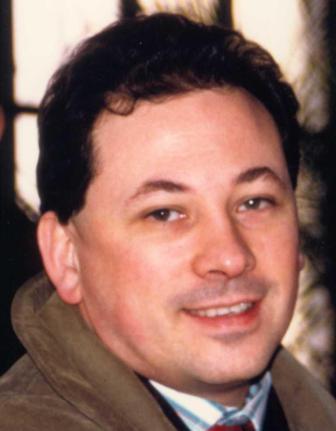
 +39 045 802 7980
+39 045 802 7980


